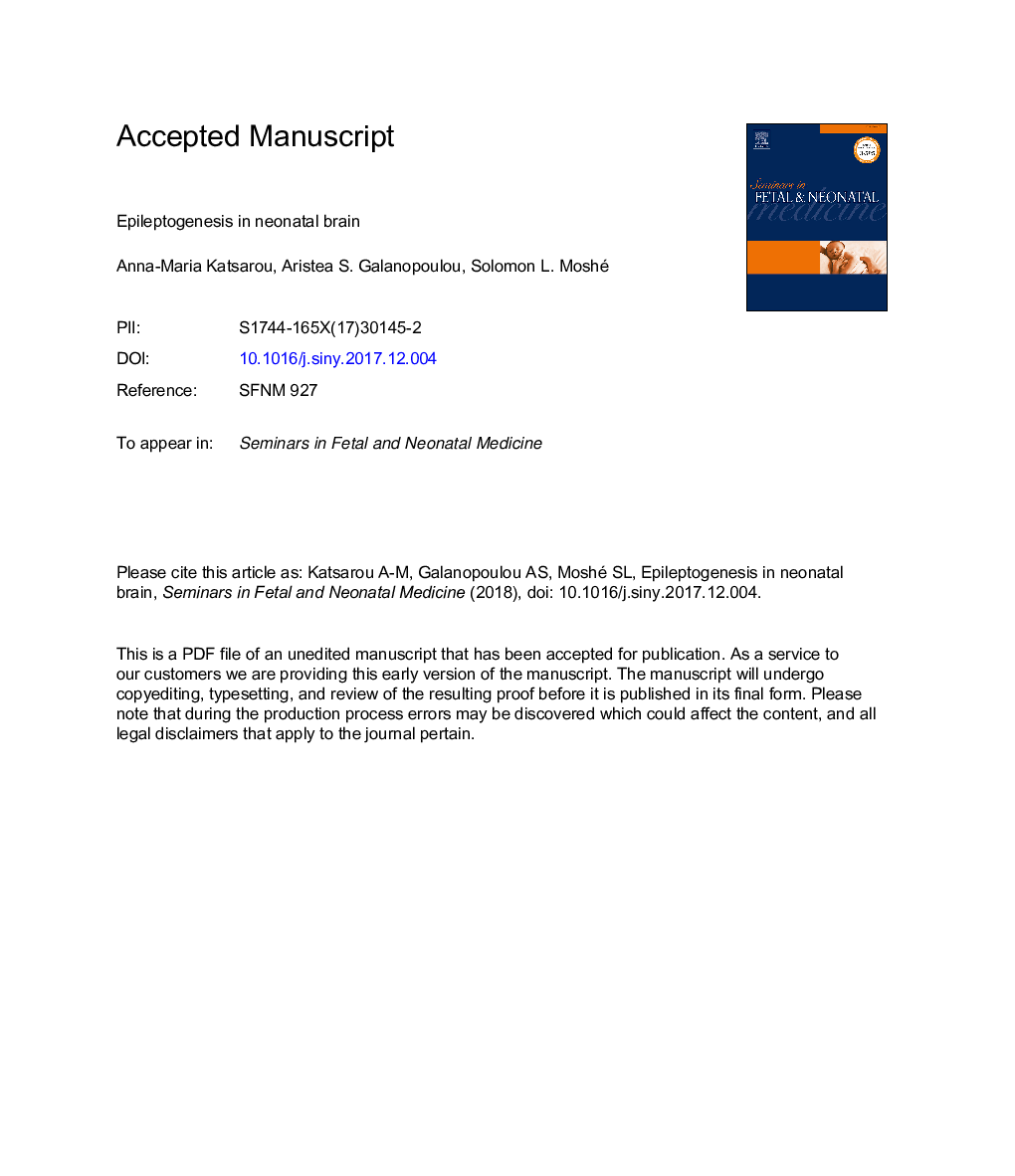| Article ID | Journal | Published Year | Pages | File Type |
|---|---|---|---|---|
| 8784276 | Seminars in Fetal and Neonatal Medicine | 2018 | 29 Pages |
Abstract
Epilepsy is a chronic neurological disorder affecting 65 million people worldwide. The etiologies of seizures can often be identified as genetic, metabolic, structural, immunologic or infectious, but in many cases the cause is unknown with the current diagnostic tools. Epileptogenesis is a process during which genetic or other acquired etiologies/insults lead to functional, structural, or network reorganization changes in the brain that may lead to the development of, or progression of, spontaneous seizures. During development, there are continuous changes in the structure, function, and network operation that also show sex specificity, which may alter the mechanisms underlying the generation of seizures (ictogenesis) and epileptogenesis. Understanding the mechanisms of early life epileptogenesis will enable the development of rationally designed age- and sex-appropriate therapies that would improve the overall quality of patients' lives. Here, we discuss some of these processes that may affect seizure generation and epileptogenesis in the neonatal brain.
Related Topics
Health Sciences
Medicine and Dentistry
Obstetrics, Gynecology and Women's Health
Authors
Anna-Maria Katsarou, Aristea S. Galanopoulou, Solomon L. Moshé,
